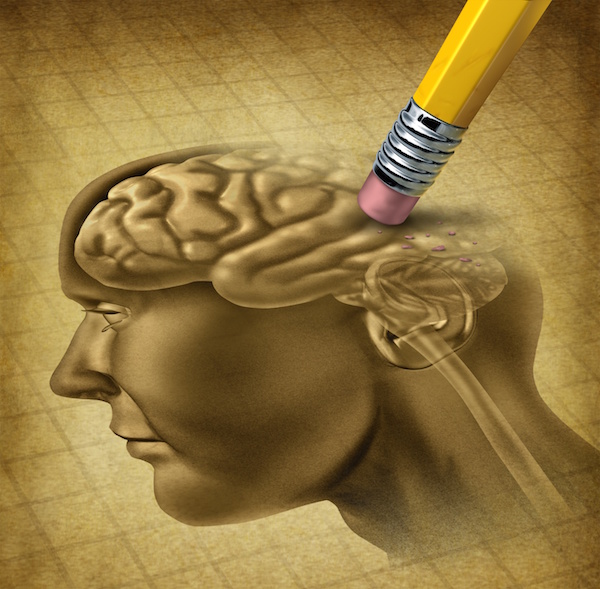
MONDAY, March 24, 2014 (HealthDay News) — There’s not yet enough evidence to support screening all older adults for dementia or a less severe condition called “mild cognitive impairment,” according to a statement released Monday by the influential U.S. Preventive Services Task Force.
Mild cognitive impairment is a type of mental decline that does not interfere with activities of daily life.
General screening tests for dementia typically involve health professionals asking patients to perform a series of tasks to assess memory, attention, language, and visual-spatial and executive function.
“We found there wasn’t sufficient evidence to recommend for or against screening,” said task force member Dr. Douglas Owens, a professor of medicine at Stanford University’s Center for Health Policy.
“This recommendation applies to people who are completely free of symptoms,” Owens said. “If someone has symptoms, they should be evaluated — that’s not screening in the sense we are talking about. We are talking about screening for people who have no symptoms whatsoever.”
Screening all older adults for dementia or mild cognitive impairment would only be worthwhile if there were meaningful treatments, Owens said.
“There would need to be interventions that you can do where the benefits would outweigh the harms,” he said.
Currently, the benefits of available treatments are “modest to small,” Owens said, “and how important those are clinically is uncertain.”
More research is needed on how early detection of mental decline could help older adults, their families and their doctors, Owens said.
The new statement, published online March 24 in the journal Annals of Internal Medicine, is the final recommendation, and updates the task force’s draft recommendation released in November 2013.
One expert, however, suggested that the task force’s recommendation is dodging a very important issue — an epidemic of dementia.
“Apparently, the task force perceives a need to defend its statement that screening for cognitive impairment is not recommended,” said Dr. Sam Gandy, director of the Center for Cognitive Health at Mount Sinai Hospital in New York City.
“Like Medicare’s decision not to cover [a brain scan for Alzheimer’s], the bottom line here is a cost-effectiveness analysis — in other words, since we have no effective treatment, we should not spend money on proactive diagnosis of dementia,” he said.
Many doctors avoid diagnosing dementia because, among other reasons, discussion of a dementia diagnosis with patients and family “is time consuming and the outlook is hopeless,” Gandy said.
“The task force’s advice that we look the other way can be interpreted as providing justification for this practice and misses an opportunity to elevate the conversation on dementia,” he said.
Gandy said a recent report found that Alzheimer’s may kill six times as many people as previously believed.
“This figure came as no surprise to dementia specialists,” he said. “As long as primary-care physicians and other professionals fail to confront the epidemic status of dementia, the more time will be required before governments take seriously the economic threat of the dementia epidemic.”
Heather Snyder, director of medical and scientific operations at the Alzheimer’s Association, said there is value in detecting dementia early, despite the task force’s stance.
“Their recommendation is that they can’t make a recommendation,” she said. “It’s very important to separate insufficient evidence from no evidence.”
The Alzheimer’s Association supports early detection and diagnosis of Alzheimer’s, Snyder said. “We know there is a better chance that an individual would be able to benefit from the current medications that are available,” she said. “They would be able to take advantage of clinical trials and participate in conversations with their family about planning for their care and financial future.”
According to the task force, dementia affects approximately 2.4 million to 5.5 million Americans. It results in trouble remembering, speaking, learning new things, concentrating and making decisions that affect daily life.
Alzheimer’s disease is one type of dementia. Mental decline is not always as severe as Alzheimer’s.
A recent study, published in the March/April edition of the journal Annals of Family Medicine, found that only about 20 percent of people who experience mild cognitive impairment will go on to develop serious brain-related disorders such as Alzheimer’s.
Although some people will be stricken with Alzheimer’s or other dementia, many will see their symptoms remain the same or disappear, the researchers said.
The U.S. Preventive Services Task Force is an independent, volunteer panel of experts in prevention- and evidence-based medicine. It makes recommendations about clinical preventive services such as screenings, counseling and medications.
More information
For more about dementia, visit the U.S. National Library of Medicine.
Copyright © 2025 HealthDay. All rights reserved.

